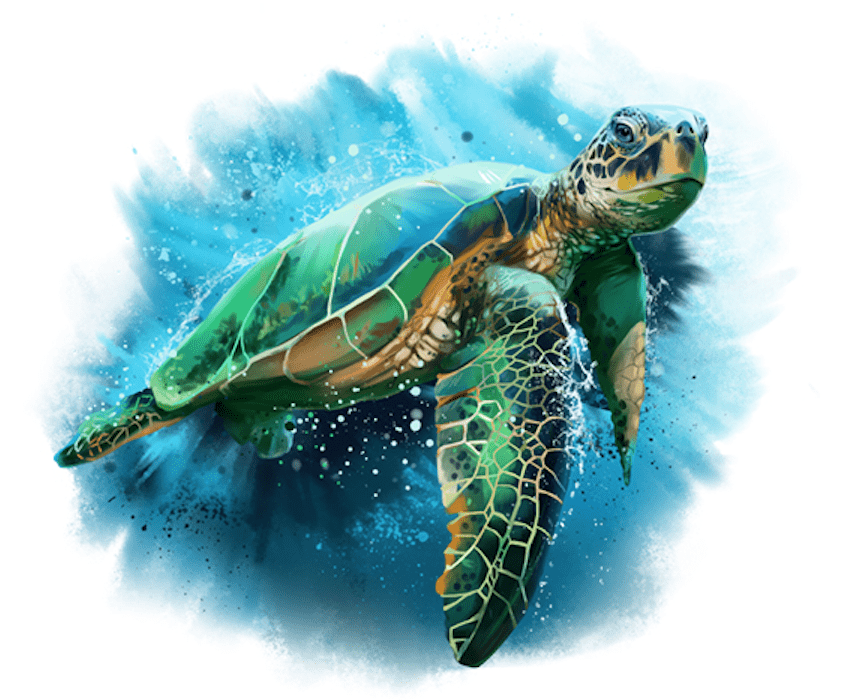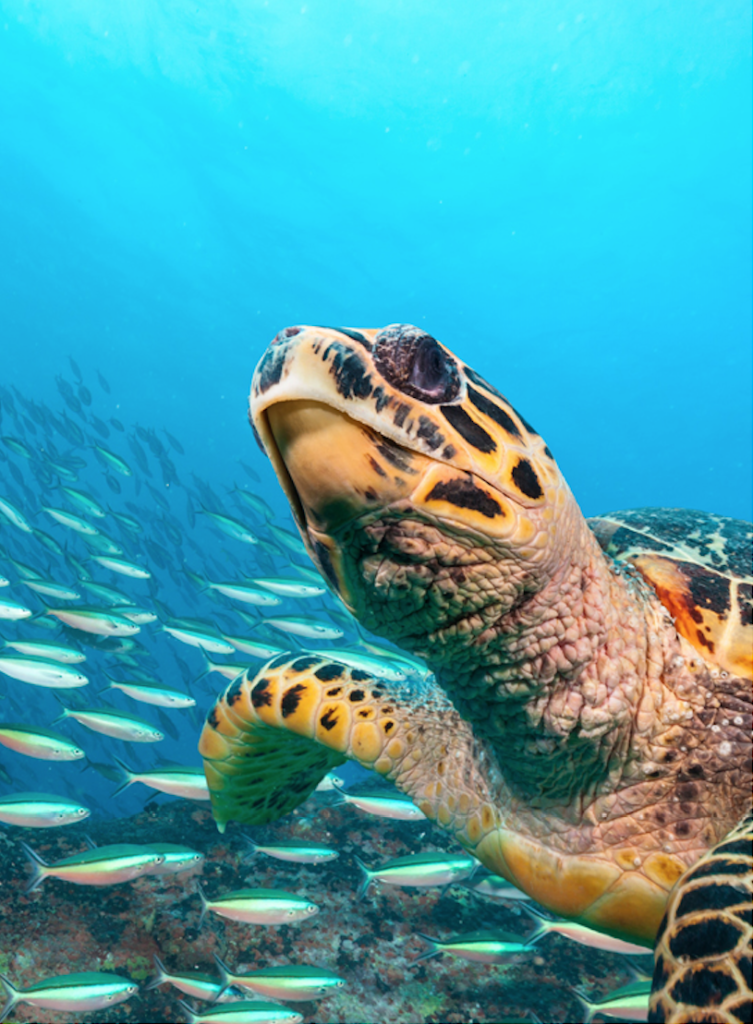Purpose: Turtles for tomorrow
Vision
Our vision is for an ocean environment that ensures Sea Turtle populations increase. As such, we commit to demanding a stable climate, clean oceans and safe nesting habitats.
Values
- Trusted influencer in the turtle space
- Lasting impact
- Collaboration
Corporate Objectives
For sea turtles
- Increase global populations
- Protect and expand nesting and foraging habitats
- Increase knowledge of, and protect, migration pathways
- Identify, highlight, and minimise processes threatening populations
- Promote community awareness of threats and solutions
- Facilitate research
- Raise funds for conservation
- Encourage the proactive implementation of solutions by Govt, non-Govt, commercial and communities
- Stop non-cultural taking of eggs and turtles
- Enable sustainable indigenous hunting and egg collection
Sea Turtle Foundation is a non-profit, non-government group based in Australia working to protect sea turtles through research, education and action.
Turtles have seen the Earth undergo many changes over time and managed to survive them all. However, things are tough in the modern era when you are a slow breeding, long-lived reptile.
Turtles face many threats from changes in climate, loss of nesting habitat, increased ocean pollution, and deliberate and accidental deaths caused by fishing activities around the world. These factors combined are pushing many of the world’s populations of sea turtles toward extinction.
Sea Turtle Foundation is working to address these threats through rescuing stranded turtles in North Queensland, training others to respond to strandings, providing educational programs for schools and communities and supporting research into turtle health and ecology throughout the Indo-Pacific region.
It is no coincidence that these beautiful and charismatic animals are the photogenic face of so many tourism brochures and environmental campaigns. Besides being iconic symbols of our ocean environment, sea turtles fulfil vital functions in ocean ecosystems. The time has come for us to protect sea turtles and rebuild their populations to healthy and sustainable levels as a vital step in ensuring healthy and resilient oceans for the future.


RESEARCH
Sea Turtle Foundation is involved in several research projects that will improve our understanding of the sea turtle life cycle. The greater our knowledge of the sea turtle life cycle, the better able we will be to reduce threats and implement effective management strategies.
Below are some of the research projects that Sea Turtle Foundation have been involved in:
- Seagrass monitoring in the northern Great Barrier Reef
- Satellite tracking of hawksbill turtles nesting in the Torres Strait
- Nesting Monitoring at AIMS Beach (Townsville, QLD)
- Cleveland Bay Acoustic Tracking (Townsville, QLD)
- Milman Island: Climate change impacts on Hawksbill turtles on Milman Island, northern Great Barrier Reef, Australia
- Raine Island: Inter-nesting patterns and migration pathways of Green turtles at Raine Island
EDUCATION
Papua New Guinea Sea Turtle & Dugong Awareness Program
Sea Turtle Foundation has worked with 13 communities in the Western Province, PNG, to educate hunters, students and community members about the threats facing their local populations of turtles and dugongs.
Education Talks
Sea Turtle Foundation’s Education Officers bring the sea turtle story into the classroom.
Community Training
Sea Turtle Foundation runs community training days for activities such as stranding response and marine debris monitoring.


ACTION
Sea Turtle Foundation takes action to protect sea turtles, such as responding to stranded turtle calls, raising alerts over potential impacts, and ensuring authorities are aware when sea turtles are at risk of harm.
Community members can make a real difference by supporting Sea Turtle Foundation’s projects and by making small changes at home and work that can make a real difference. Current action projects include:
- Stranding Response – Sick, injured or dead turtles often wash up on beaches; our volunteers assist authorities in responding to and collecting data from stranding events.
- Marine Debris – Thousands of sea turtles die every year from marine debris.
- Coastal Lights – Inappropriate coastal lighting disturbs nesting females and sends hatchlings the wrong way.
- Community Events – Raising awareness of our activities and letting the public know how to get involved is part of our action strategy–come along and show your support for sea turtles!


